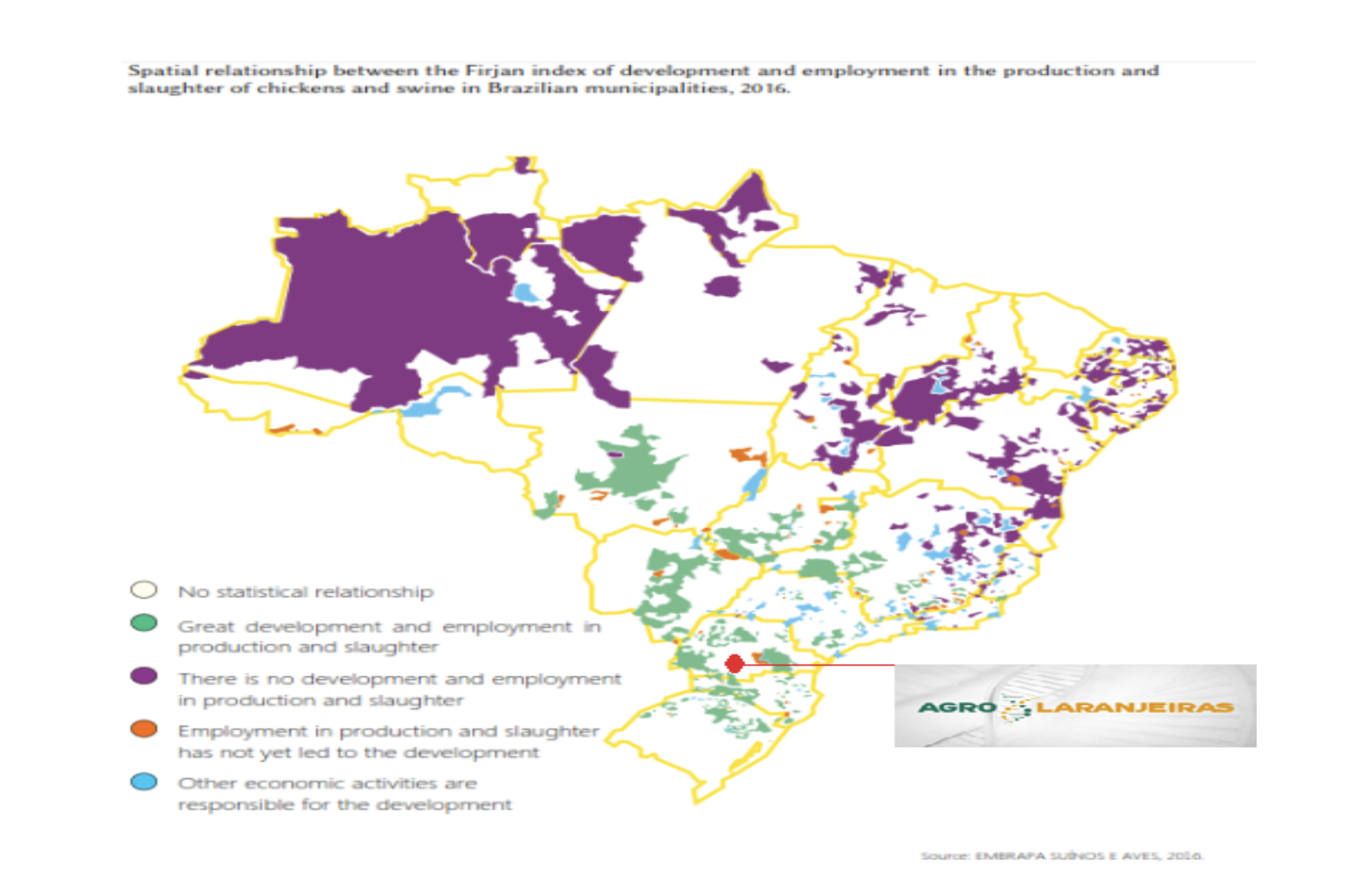AGRO LANJEIRAS
PROJECT FOR FARM FINANCING FOR THE PRODUCTION OF WEANED PIGLETS
PIG FARMING BRASIL
The integrated animal production system is a Brazilian model and emerged together with poultry and pig farming in the 1960s. Initially, the relationship was one of purchase and sale in which the producer assumed all the risks of production and had a partner in the industry for the marketing of his production. Connecting these two ends was the figure of the local trader who performed the logistics of the operation.
This model has been refined and taken on new forms of commercial relationship, right up to the present day. Today, it has the meat industry as a pillar of support, which assumes the risks of the business and offers returns commensurate with the participation of the outgrower and depending on the stage of rearing it carries out. In this model, advances in genetics, nutrition, animal health, facilities and management quickly reach the entire production chain, as they represent opportunities for gains for everyone and, especially, for the business proponent.
Parallel to this evolution in the way of production, genetic improvement has incorporated great advances and manages to, with each new generation, add new gains, allowing cost reduction, which provides the offer of healthy meat to all classes of consumers.
It is important to point out that pig farming absorbs labor in a relatively intensive way when analyzing the entire production chain and, to a certain extent, those least qualified. Current projects seek to reduce dependence on intensive labor with the incorporation of more efficient systems for handling animals and waste, incorporating hollow floors, automation in the distribution of feed, and air conditioning, among other improvements.
Also significant has been the evolution that took place in the form of production. We have moved from a farrow to finish model, where the producer performed all the stages of production, to segmented rearing, where some producers perform the task of producing piglets, and others, in greater numbers, carry out the nursery phases and finishing.

